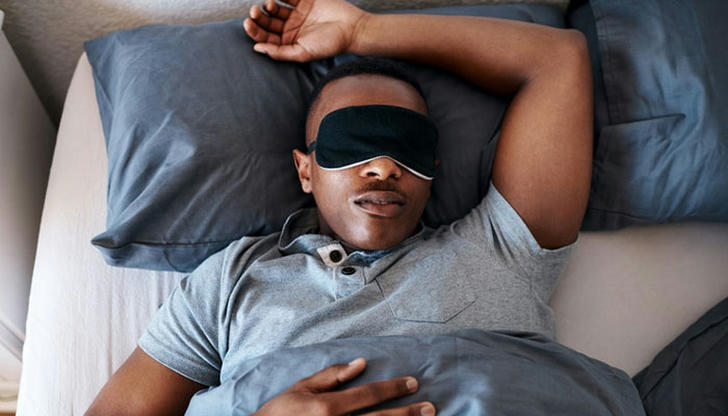Do You Really Need 8 Hours of Sleep?
You’ve heard it all your life: “You need 8 hours of sleep every night.” But is this one-size-fits-all rule really based on science? Or is it just a myth passed down through generations?
In this article, we’ll break down the science of sleep, uncover how much rest your body actually needs, and highlight the dangers of too little (or too much) sleep.

Where Did the “8-Hour Rule” Come From?
The idea that humans need 8 hours of sleep daily became popular in the early 20th century. But recent research shows that sleep needs vary by age, lifestyle, and genetics.
| Age Group | Recommended Sleep Duration |
|---|---|
| Infants (0–1 yr) | 12–16 hours |
| Teens (13–18 yrs) | 8–10 hours |
| Adults (18–64 yrs) | 7–9 hours |
| Older Adults (65+) | 7–8 hours |
🛑 Getting exactly 8 hours isn't mandatory for everyone — some people thrive on 6.5, others need 9.
What Happens When You Sleep?
Sleep isn’t just rest — it’s active recovery.
Sleep Stages:
- Light Sleep (Stage 1 & 2): Regulates temperature, heart rate slows
- Deep Sleep (Stage 3): Muscle growth, immune repair
- REM Sleep: Dreaming, memory consolidation, emotional processing
Without enough of these cycles, your body and brain suffer.
Signs You’re Not Getting Enough Sleep 🚨
- Daytime fatigue or naps
- Mood swings or irritability
- Poor concentration and memory
- Weight gain
- Low immunity (frequent colds)
🔴 Chronic sleep deprivation has been linked to heart disease, diabetes, depression, and even early death.
Can You Sleep Too Much?
Yes. Oversleeping can be as harmful as sleeping too little.
Health risks of excessive sleep:
- Increased inflammation
- Higher risk of stroke
- Depression and anxiety
- Poor cardiovascular health
🔴 More than 9–10 hours of sleep regularly could signal an underlying health issue.
How Much Sleep Do YOU Need?
Sleep needs vary. Ask yourself:
- Do you feel refreshed after waking?
- Do you rely on caffeine to stay awake?
- Do you fall asleep within 10–20 minutes?
Here’s a general sleep need table:
| Lifestyle Factor | Ideal Sleep Range |
|---|---|
| Sedentary job | 7–8 hours |
| Physically active | 8–9 hours |
| High-stress career | 8+ hours with deep sleep focus |
| Students or shift workers | May need extra rest |
Myth-Busting Common Sleep Beliefs
| Myth | Truth |
|---|---|
| Everyone needs 8 hours | Needs range from 6–9 hours |
| Naps are lazy | Short naps (20–30 mins) boost focus |
| You can "catch up" on weekends | Recovery is limited; regular sleep is better |
| Older people don’t need as much sleep | They often sleep less, but still need ~7 hrs |
How to Improve Sleep Quality 🌙✨
Getting enough sleep is one thing. Getting quality sleep is another.
✅ Tips for Better Sleep:
- Stick to a regular schedule — even on weekends
- Avoid screens 1 hour before bed 📴
- Keep your room cool, dark, and quiet
- Limit caffeine and alcohol after 2 PM
- Exercise daily, but not too late
- Use your bed only for sleep and intimacy
⚠️ Avoid These Habits:
- Eating large meals before bed
- Using your phone in bed
- Napping more than 30 minutes after 4 PM
🔴 Poor sleep hygiene is a leading cause of insomnia and poor rest — fix your habits first before turning to medication.
Do Sleep Trackers Help?
Wearables and sleep apps give insight into your sleep patterns — light vs. deep sleep, interruptions, duration.
But remember:
- They can’t diagnose sleep disorders
- Data may not always be accurate
- Use them as a guideline, not gospel
If you suspect sleep apnea or insomnia, talk to a doctor instead of relying on an app.
Special Cases: Shift Workers & Parents 👶🌃
Night shift workers and new parents are at high risk of sleep disruption.
Solutions:
- Use blackout curtains and eye masks
- Take power naps before shifts
- Avoid long commutes when possible
- Share baby care with a partner
🔴 Consistent disruption in circadian rhythm can lead to cognitive decline and immune issues.
When to See a Doctor 🩺
You may need medical help if:
- You take more than 30 minutes to fall asleep
- You wake up multiple times each night
- You snore heavily or gasp in sleep
- You feel tired even after 8+ hours of rest
A sleep study may reveal:
- Sleep apnea
- Restless leg syndrome
- Narcolepsy
- Insomnia disorder
Key Takeaways 🧠
| Takeaway | Summary |
|---|---|
| "8 hours" is not a strict rule | Personal sleep needs vary |
| Quality matters more than quantity | Deep and REM sleep are crucial |
| Sleep too little or too much = risky | Aim for balance and consistency |
| Good sleep = better health | Memory, mood, immunity, weight all benefit |
🔴 Don’t obsess over the clock — focus on how you feel.
Final Thoughts
The truth is: you don’t need exactly 8 hours of sleep — but you do need enough quality rest for your body and mind. Understand your personal rhythm, optimize your sleep environment, and listen to your body.
Sleep is not a luxury. It’s your body’s best tool for healing, focus, and energy. 💤💪
References
- National Sleep Foundation
- Harvard Medical School – Division of Sleep Medicine
- CDC Sleep and Health Study
- Sleep Research Society
